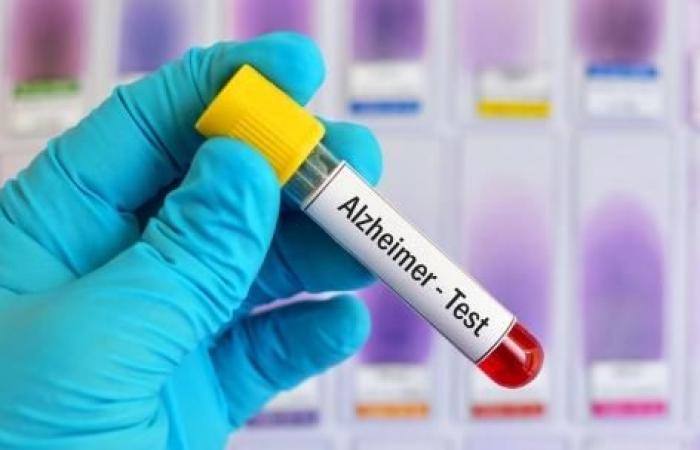THE ESSENTIAL
- Researchers have found that blood levels of acetyl-L-carnitine and free carnitine decrease with the severity of Alzheimer’s disease, particularly in women.
- These molecules, correlated with b-amyloid and tau proteins, could serve as non-invasive biomarkers to diagnose the disease and monitor its progression. In addition, they open up prospects for new treatments targeting related metabolic processes.
- This advance could replace current methods, such as lumbar punctures, and improve the prevention and management of Alzheimer’s.
Will we soon be able to detect Alzheimer’s disease with a simple blood test? This is what a study carried out by a team of American and Brazilian neuroscientists, led by NYU Langone Health, in the United States, suggests. According to the researchers, who published their work in the journal Molecular Psychiatrythe level of two natural blood molecules, acetyl-L-carnitine and free carnitine, could become a key indicator of the presence and severity of neurodegenerative disease.
Biomarkers linked to key Alzheimer’s proteins
The researchers analyzed the levels of these two molecules in 93 volunteers suffering from varying degrees of cognitive decline, and in 32 healthy participants. Their observation is clear: in women, the levels of free carnitine and acetyl-L-carnitine decrease proportionally to the severity of cognitive disorders, from the first signs to advanced stages of the disease. In men, on the other hand, only the level of acetyl-L-carnitine seems to be affected.
These results could explain why women are predominantly more affected by Alzheimer’s disease. “Sex differences in the levels of these molecules could shed light on the reasons for this disparity”note the researchers in a press release.
-The study also shows a correlation between these blood biomarkers and elevated levels of beta-amyloid and tau protein, two classic markers of Alzheimer’s progression. By combining this data, the researchers achieved a diagnostic accuracy of 93%, surpassing current methods based on often painful cerebrospinal fluid samples.
Towards a preventive blood test?
These advances pave the way for a simple, non-invasive blood test to detect Alzheimer’s. “Such a test could also monitor the progression of the disease and evaluate the effectiveness of new treatments”emphasize the scientists. This test could replace current questionnaires, which are often subjective, and provide an objective measure of the severity of disorders.
Note that beyond diagnosis, these molecules also offer new targets to slow the progression of neurodegenerative disease. Acetyl-L-carnitine, essential for energy metabolism and nerve cell repair, may play a crucial role. In the future, researchers plan to explore its link with other disorders, such as depression, often associated with Alzheimer’s.






